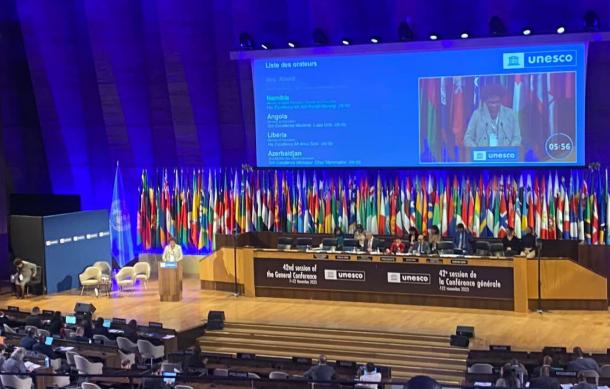
Namibia has emphasised the pivotal role of collaboration to enhance the impact of collective endeavours.
Delivering Namibia's statement at the 42nd session of UNESCO's General Conference in Paris, the Minister of Higher Education, Technology, and Innovation, Dr. Itah Kandjii-Murangi, pointed out that the success of the world body's initiatives hinges upon close collaboration and synergy among member states.
Dr. Kandjii-Murangi welcomed the Director General's 2018–2021 report on UNESCO's activities, detailing UNESCO's remarkable achievements and invaluable contributions.
The minister stated that there is a pressing need to sustain an unwavering commitment to the Sustainable Development Goals, particularly for Africa and the least developed countries.
"In this regard, our plea extends beyond encouraging enhanced cooperation. Namibia strongly emphasises the pivotal role collaboration plays in amplifying the impact of collective endeavours in promoting education, science, culture, and communication."
Namibia also endorsed the adoption of UNESCO's Draft Budget for the years 2024 and 2025.
Unesco's financial stability is crucial in addressing the Priority Africa programme, gender and youth empowerment, and catering to the unique needs of the least developed countries.
"Namibia believes that our focus should be on responding effectively to the findings of the UN Monitoring Report, which sadly indicate that no country is on course to achieve all of the 17 SDGs by 2030. We, however, remain eternally optimistic as we march towards the '2024 Summit of the Future,' aimed at re-doubling our efforts in achieving the goals of Agenda 2030."
Namibia also recognises technical and vocational education and training as an important vehicle for equipping the youth to navigate the complexities of today's job market.
UNESCO's General Conference takes place every two years, and it is the highest decision-making body, setting its programme and budget.





